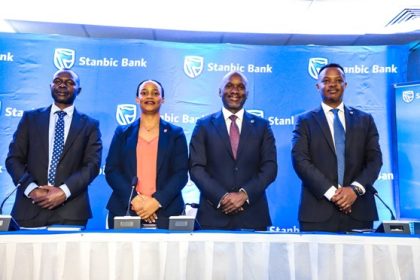CCC steps up enforcement in 2024 amid rising mergers and consumer cases across COMESA region

Regional consumer watchdog COMESA Competition Commission (CCC), recorded a sharp increase in enforcement activity across the Common Market in 2024, handling a record number of mergers and ramping up its response to anti-competitive practices and consumer protection violations.
According to its 2024 Annual Report, the CCC received 56 merger notifications, representing a 47.4% increase from 2023. The highest number of transactions came from the banking and financial services, energy, ICT, and agriculture sectors.
“This marks yet another exciting year for the CCC,” said Chief Executive Officer Dr. Willard Mwemba. “The significant rise in merger notifications reflects the growing complexity and regional scale of business operations within the COMESA bloc. Our work ensures that these mergers do not undermine competition or harm consumers.”
Dr. Mwemba emphasized that while many mergers are determined at national level under the subsidiarity principle, the CCC plays a crucial role where transactions have a regional dimension. “We have designed our thresholds to ensure that only those mergers with cross-border implications fall under our jurisdiction,” he said.
Crackdown on Restrictive Practices and Consumer Violations
In 2024, the CCC also assessed seven ongoing restrictive business practices cases, initiated two new investigations, and closed one. These were concentrated in the beverages, retail, ICT, and logistics sectors.
On the consumer protection front, the CCC handled 18 cases, more than doubling the number recorded in 2023. Most involved the manufacture of fast-moving consumer goods, while the ICT, aviation, and transport sectors also saw complaints.
Dr. Mwemba attributed the rise in complaints and cases to “increased awareness of our regional legal frameworks and enforcement mechanisms,” and noted that the Commission has transitioned from what he once termed a “soft enforcement” phase into an era of “hard enforcement.”
“We are committed to ensuring the Common Market is free from conduct that frustrates regional integration and hampers economic growth,” he said.
Research and Food Market Interventions
Beyond enforcement, the CCC prioritized research as a policy tool, especially in critical sectors like agriculture and food markets.
“In 2024, we continued research under the African Market Observatory project with the University of Johannesburg’s CCRED,” said Dr. Mwemba. “Our findings confirmed that both anti-competitive conduct and poorly designed policies are distorting food markets. These markets affect the majority of COMESA citizens, especially the poor.”
Research findings were shared with Member States’ ambassadors, the COMESA Council of Ministers, and the wider public. The CCC also partnered with the Competition Commission of South Africa (CCSA) and the Competition Authority of Kenya (CAK) to bring food market issues to the global stage through the International Competition Network.
Advocacy and Capacity Support
In line with its broader mandate, the CCC also engaged in advocacy and capacity-building, targeting judges, legal practitioners, journalists, diplomats, and university students from across the region. The Commission hosted its second press conference to provide transparency around its cases, decisions, and legal reform agenda.
Dr. Mwemba also highlighted the Commission’s technical assistance to Member States, including law reform in Eswatini, Egypt, and Djibouti, and capacity building in Comoros, DRC, Libya, Zambia, and Zimbabwe. Rwanda received support in developing competition enforcement guidelines.
“Robust competition institutions at national level are key to the effective functioning of the regional system,” Dr. Mwemba said. “We are proud to contribute to this strengthening process.”
The CCC acknowledged support from its international partners, including the Commonwealth Secretariat, EU, UNCTAD, USFTC, USDoJ, and the Shamba Centre for Food and Climate.
“These achievements are not a mean feat,” Dr. Mwemba noted. “They are the result of commitment from our staff, Board, cooperating partners, and Member States. Together, we are building fairer markets and stronger economies.”


 Government reaffirms commitment to capitalise UDB as Bank deepens development finance role
Government reaffirms commitment to capitalise UDB as Bank deepens development finance role
 Uganda’s DEI Biopharma gene therapy breakthrough could transform sickle cell treatment
Uganda’s DEI Biopharma gene therapy breakthrough could transform sickle cell treatment
 Equity Bank Uganda set to close 2025 on firmer footing as clean-up phase gives way to growth
Equity Bank Uganda set to close 2025 on firmer footing as clean-up phase gives way to growth
 Stanbic targets wider access to affordable financing with ‘Oli In Charge’ campaign
Stanbic targets wider access to affordable financing with ‘Oli In Charge’ campaign
 USA–Canada certification dispute could expose Uganda and regional airlines to regulatory risk
USA–Canada certification dispute could expose Uganda and regional airlines to regulatory risk
 Sumsub launches AI Agent Verification as Africa grapples with surge in AI-driven fraud
Sumsub launches AI Agent Verification as Africa grapples with surge in AI-driven fraud